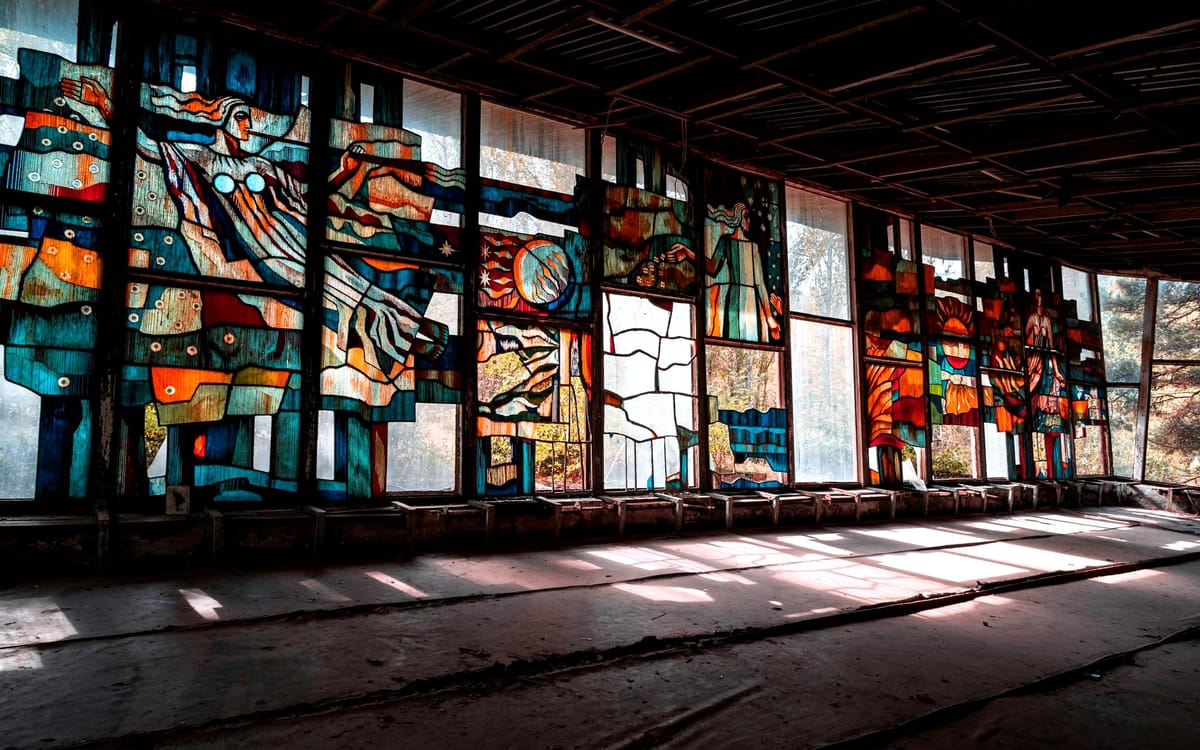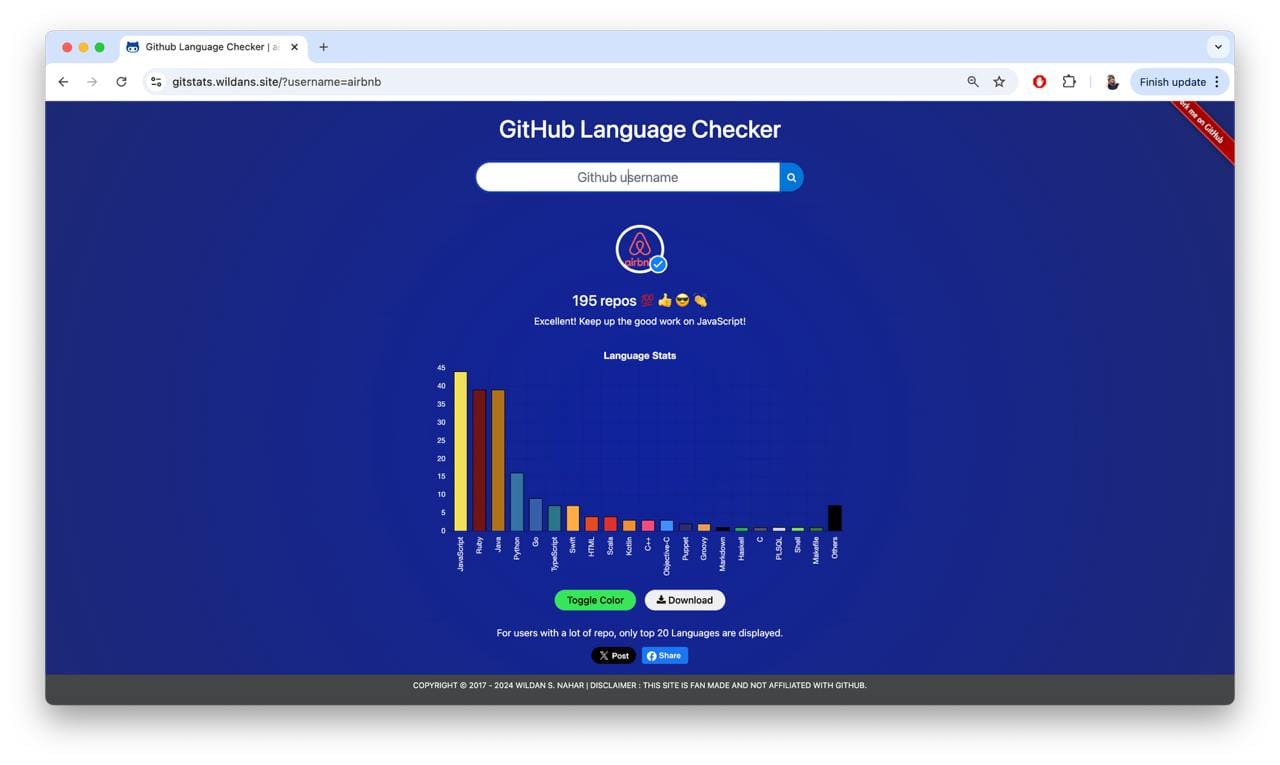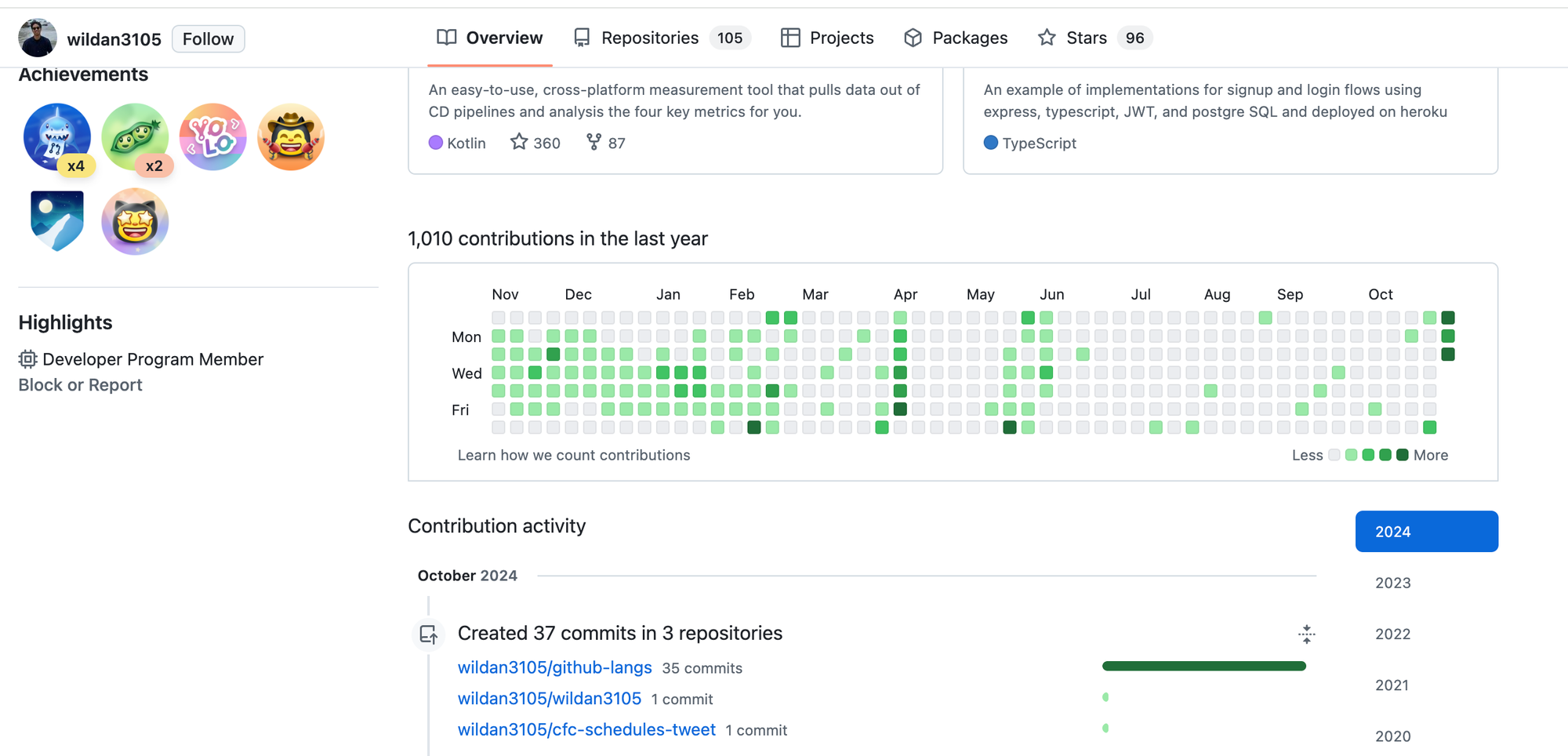Side projects

I have been pursuing side projects since my university days, starting in my third year with a few web development projects. I found it incredibly fulfilling–expanding my network, learning many new things, and taking responsibility to deliver the project on time. On top of that, I got paid quite generously, especially for a college student 💰
Toward the end of university, I also ventured into open-source development. I had an idea to create a tool to display users' GitHub language statistics, showing how many repositories were written in certain languages. My motivation was straightforward: I wanted a quick way to see a user's programming language distribution at a glance. The first commit happened in October 2017–already seven years ago! I remember working on it tirelessly, whether on campus or back at home. Looking back, that was the first real sign of my passion for side projects, especially through open-source.

Present day
Fast forward to my current working life. I still work on side projects occasionally. However, the frequency and intensity are significantly lower than in my university days. This is partly due to limited time after a full day at work. Also, at times, I just want to unwind and give my brain and eyes a break from staring at a monitor.
Another factor is my desire to spend free time on physical activities–like running, swimming, or playing badminton–as I've been inconsistent with them over the past 3-4 years. I believe these activities will have a positive impact on my physical and mental well-being down the road (more on this in another post ✍️).
Missing piece
But last weekend, while checking my GitHub activity, I realized something was missing.

Sure enough, my GitHub contributions over the past several months have been strikingly low. To me, this means a few things. First, I've been too focused on work–even in my free time–which has kept me from maintaining my side projects. Second, I haven't had any other "software engineering" activities outside of work, which I see as a concerning sign.
I love creating things and solving problems, particularly the kinds I encounter frequently. This drive was also what led me to build my second side project, CFC Schedules Tweet, which posts a tweet a day and an hour before each Chelsea FC match.

I built it because I needed a reliable reminder every time my favorite club was about to play. No existing tool provided exactly what I needed–the Premier League calendar only notifies me about league matches, and even the Chelsea Official App lacks this feature. So, I just built my own solution 🤷🏻♂️
Finding energy
Now, I am in a high spirit to recapture that same energy and make it sustainable. I believe this will be beneficial for a couple of reasons. Side projects keep our minds engaged with fresh, original ideas–something that often differs from our experience in traditional jobs, where ideas can be restricted by managers, company priorities, timelines, and many other things. In side projects, however, we're the ones controlling the "space and time". We can work on them at night, on weekends, or whenever we choose, as long as we're mindful of our primary responsibilities.
Other reasons include:
- Gaining experience as a solopreneur, particularly in building products independently
- Learning multiple skills at once
- Being creative with limited resources
With that in mind, I want to commit to my current side projects and apply the lessons I've gained from 5-6 years as a software engineer.
Epilogue
There will always be obstacles–finding time, staying motivated, paying maintenance costs, and more. But I already know the answer to those challenges: as long as I'm happy, find joy in the work and learn new things, they won't hold me back.
I'm now committed to improving the side projects I've been managing. This can be reflected in various forms: new features, better security, and greater contributor friendliness (since most of them are open-source projects).
I also plan to take on new projects originated from everyday problems. Ultimately, the joy of using our own products should be the most important metric before anything else.
After all, if we don’t find joy in what we create, how can we expect others to?